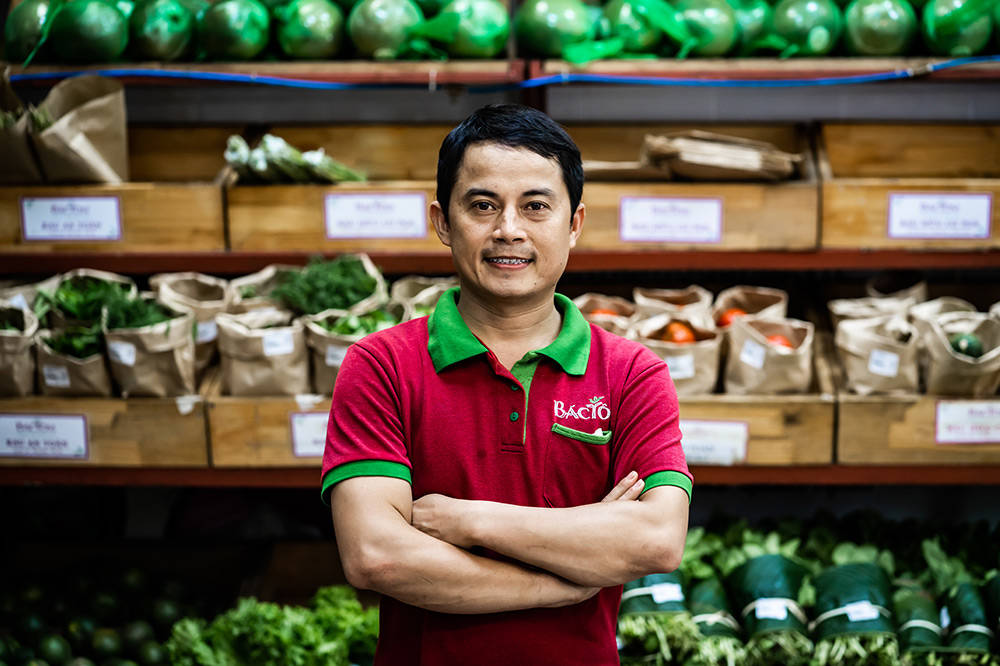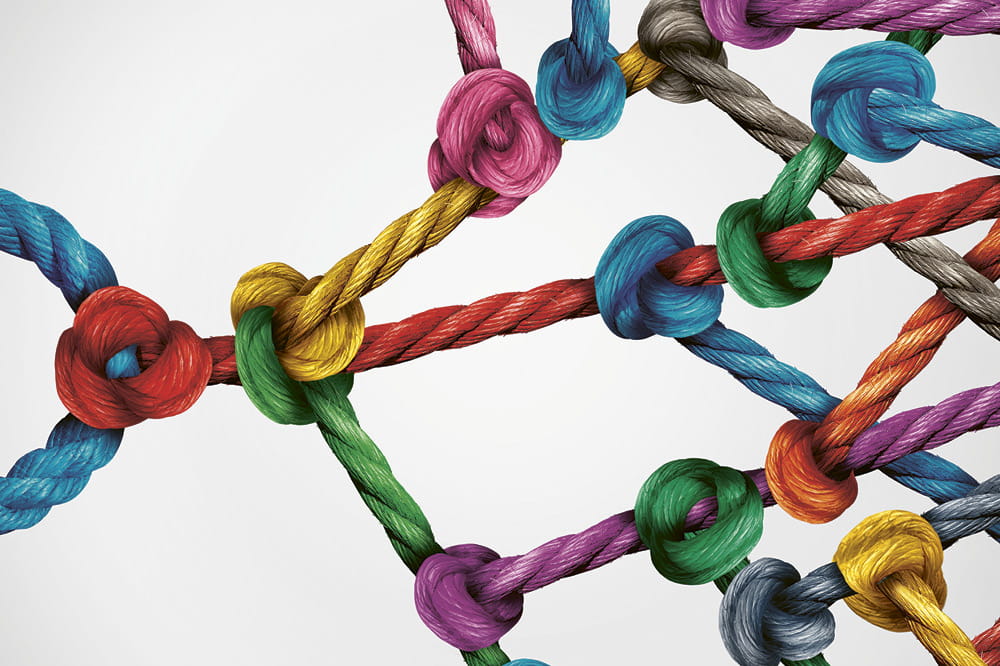Obtain news and background information about sealing technology, get in touch with innovative products – subscribe to the free e-mail newsletter.
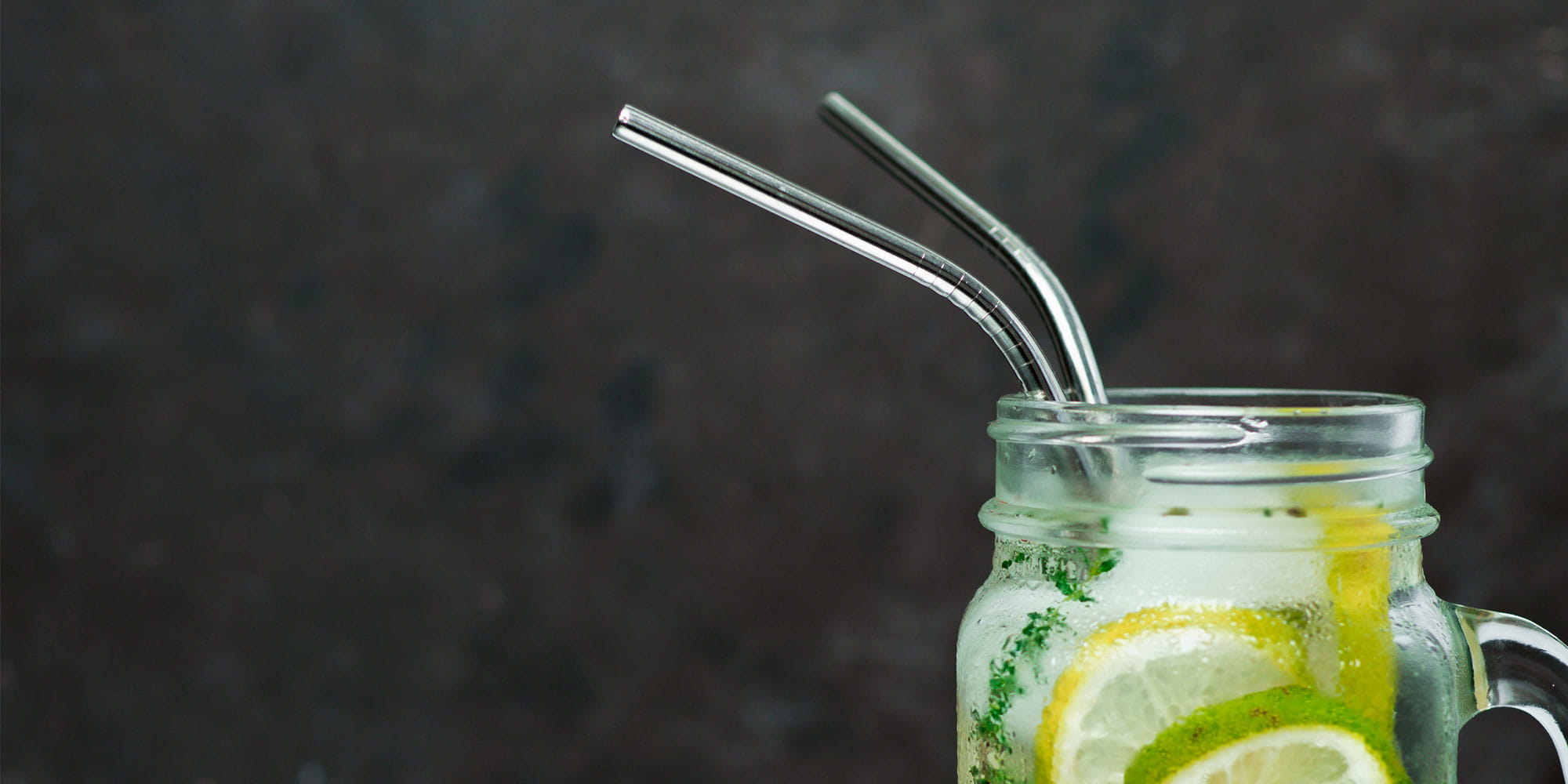
It Doesn’t Always Have to be Plastic
Prohibitions stimulate a spirit of invention: To protect the ocean from plastic waste, the EU is banning many objects made of single-use plastic starting in 2021. In fact, there are replacement materials that can be used in straws, coffee cups and packaging.
Eat the Spoon, Too
The German startup Spoontainable has developed a sustainable spoon that you can eat after you enjoy your ice cream sundae. The Spoonie is made of cacao shell fibers, material left over after chocolate production. Aside from its ecological advantages, the material is both elastic and stable.
Spoontainable received the Newcomer Award at the Food Innovation Camp in June of 2019. “We’re showing how easy it can be to replace plastic – with small-scale alternatives,” said founders Amelie Vermeer, Julia Piechotta and Anja Wildermuth, who attend the University of Hohenheim.
They conducted the first tests in a shared kitchen and then developed the edible spoon to market readiness. It tastes like a chocolate cookie, is vegan, and contains no sugar, lactose or gluten. If you would rather not eat it, you can throw it away as a biodegradable waste, Spoontainable’s founders say. They supply Spoonies to ice cream parlors in Germany, Austria, Italy and the Czech Republic as well as the food-service industry.
If the Spoonie catches on, it could replace more than 300 million ice cream spoons a year in Germany alone. About 18 billion plastic spoons are produced annually worldwide.
Cocktails without Straws
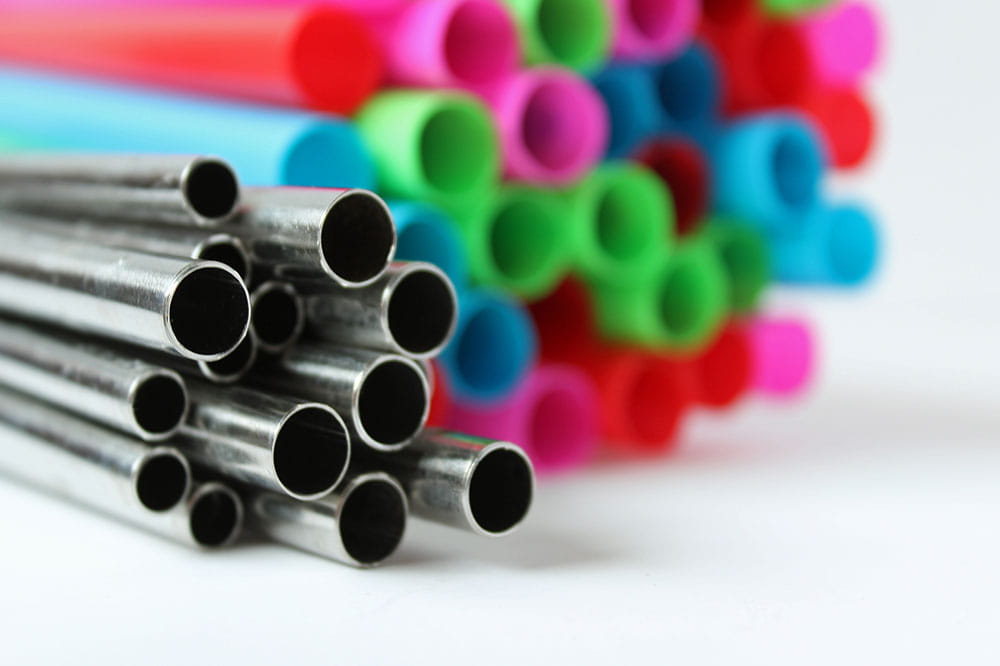
Since July 2019, the Marriott hotel chain has banned plastic straws and stirrers at their 6,500 facilities worldwide. That is eliminating the use of about 1 billion plastic straws per year – objects that are barely in use more than 15 minutes but survive in the environment for up to 500 years.
By comparison, about 36.4 billion plastic straws are thrown away in the EU each year, according to the European environmental organization Seas at Risk. Lined up one after the other, they would reach from the earth to the moon and back ten times.
Since April 2019, visitors to Disneyland Paris have been sipping their soft drinks through compostable paper straws. Other Disney parks around the world are expected to follow suit. Certainly, single-use straws made of paper muddy the sustainability balance sheet with high water and energy consumption. But they decompose more quickly than the plastic variety. Reusable straws made of metal and glass would be hygienic and more durable. They are making inroads as well, even if they tend to be a stylish design product. Another option, the straw stalk, dates back to the object’s origin. The Lübeck entrepreneur Marie-Louise Dobler has been producing drinking straws from rye stalks. Around the world, other companies are tinkering with drinking straws made from renewables such as bamboo, grass paper, rice flour and sugarcane.
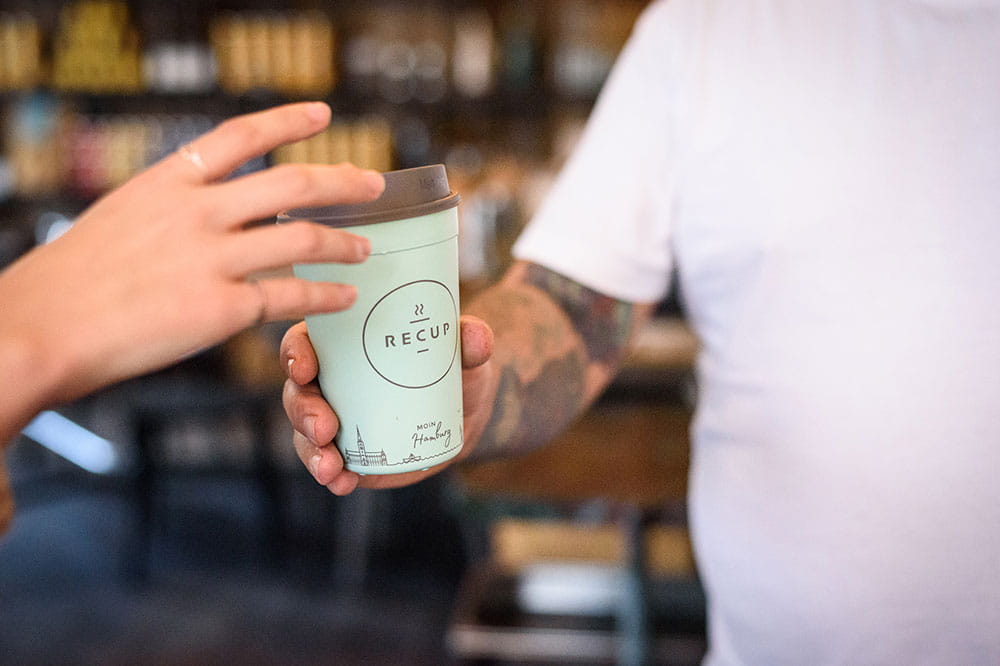
Deposit System Promotes Coffee-to-Go Cups
About 320,000 coffee-to-go-cups are used per hour in Germany alone, Environmental Action Germany has calculated. That adds up to 7.6 million per day and 2.8 billion per year. The estimate for the United States is more than 100 million throw-away cups per day.
A deposit system could provide a remedy. Three college students liked the concept so much that they teamed up and formed a startup called Recup. In exchange for a one-euro deposit, coffee drinkers get their coffee-to-go in a reusable mug made of recyclable polypropylene that they can return to any participating shop nationwide. There it is cleaned and put back into circulation. So far, there are about 2,000 Recup locations around the country, with the greatest concentrations in large cities. There’s also a Recup test program underway in Durban, South Africa.
The deposit concept runs squarely into two human weaknesses, however: forgetfulness and a passion for collecting. Forgetful coffee drinkers and souvenir hunters who take their chic mugs home break the cycle of sustainability.
Mushrooms Instead of Polystyrene: Compostable Packaging
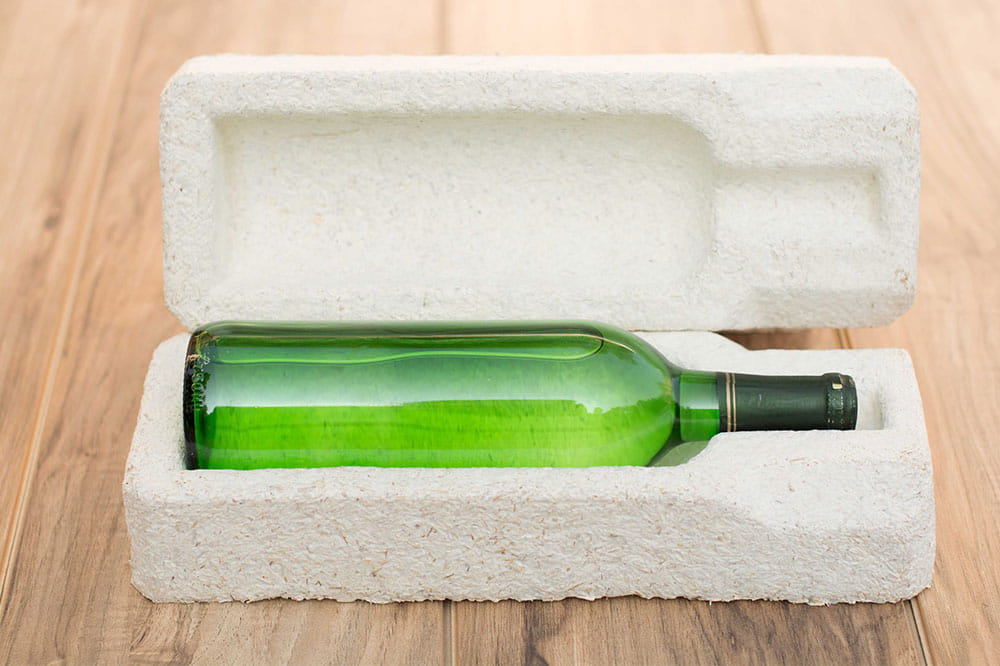
There are visionaries who see mushrooms as the plastic substitute of the future. At a minimum, the fungi have the potential to replace polystyrene as a packaging material. The giant furniture company IKEA and the computer maker Dell are already using mushroom-based packaging.
The U.S. firm Ecovative is one of the process’s pioneers: Plant remains are mixed with a fast-growing mycelium that binds and thickens organic material. Any given shape can be produced in molds. A drying process stops the growth and the environmentally friendly packaging is ready to go. After use, it can be discarded in an organic waste bin or used as fertilizer in a garden.
Our current focus is on single-use plastic, the stress that it places on the environment, and how we can deal with the problem. And on the question of whether plastic itself can be a solution. You can read more about the topic “Plastic – Breakthrough and Burden” in the ESSENTIAL edition that is due out in mid-November.
More Stories About Sustainability






